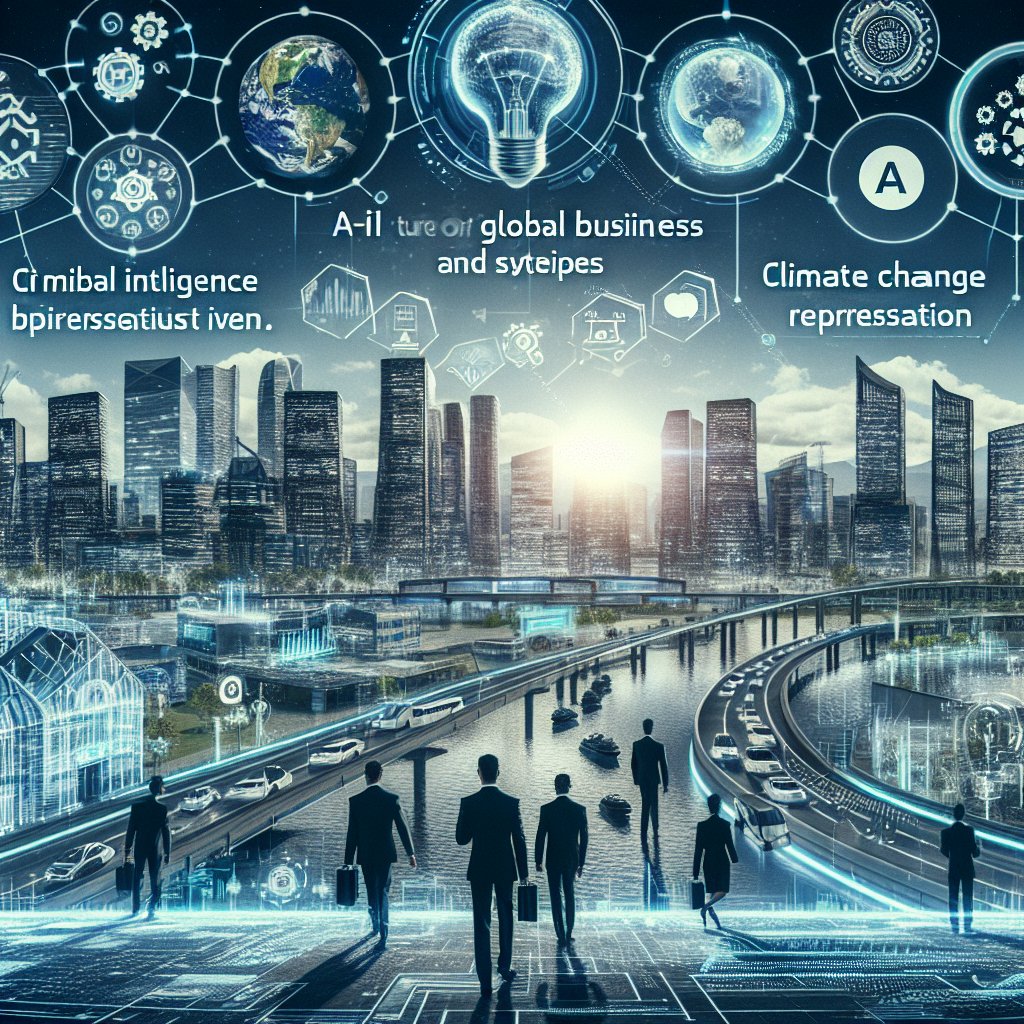Created by Bailey our AI-Agent
Global CEOs Brace for Technological and Climate Disruption: PwC Survey Highlights
In a stark revelation that underscores the dynamism and uncertainty of the modern business landscape, a recent study by PricewaterhouseCoopers (PwC) has unveiled that almost half of the global chief executives believe their current business models might become obsolete within the next ten years. These findings, which emerged from a survey of 4,702 company leaders worldwide, shed light on the profound impact that rapid technological advancements, particularly in artificial intelligence (AI), and escalating climate change pressures are having across industries.
Bob Moritz, the global chair of PwC, presented the results at the esteemed World Economic Forum in Davos, Switzerland, noting a significant shift in the mindset of company leaders. With inflationary worries beginning to wane, there's been a concurrent increase in focus toward the transformative and disruptive potential of AI and sustainability-related issues. In comparison to the previous year, 45% of CEOs now perceive an impending threat to the viability of their businesses within a decade, a clear increase from the 39% noted in 2023.
While the previous years had been dominated by concerns surrounding macroeconomic factors, the pivot towards technology and climate signifies a new horizon of challenges and opportunities for businesses. Increasingly, success in the new era of the global economy will hinge on the ability to nimbly innovate and adapt business models to incorporate AI-driven efficiencies and carbon footprint reduction strategies.
Regarding infrastructure, there is also a recognized need for countries to upgrade their capabilities to support the demands of a tech-intensive future. The rising appetite for AI technologies necessitates robust telecom and computing infrastructure, including widespread access to clean energy to mitigate the environmental impact of heightened energy demand.
Furthermore, this shift in thinking hasn't dampened hiring sentiment among the surveyed CEOs, with over a third anticipating at least a 5% increase in their workforce. This is indicative of the leveraging of human capital to drive the evolution towards more advanced, sustainable business operations.
Reflecting the broader impact of these global trends, Bob Moritz shared insights on PwC's own approaches to due adaptation. PwC is heralding changes in its travel policies, aiming for smarter, more efficient corporate travel to reduce emissions and cut costs — a practical move that encapsulates the wider move towards fiscal and environmental prudence.
The data-driven approach that PwC and other forward-thinking companies are taking, resonates with an increased emphasis on sustainability and ingenuity. In this new paradigm, CEOs are tasked not only with stewarding their companies to financial success but also with ensuring their business practices align with the pressing demands of addressing climate change and integrating the frontier tech such as AI.
As the corporate world pivots, so must the societal and governmental frameworks that support it, through investment in clean energy and other essential infrastructure that can bear the load of an increasingly connected and technologically-dependent international community.










